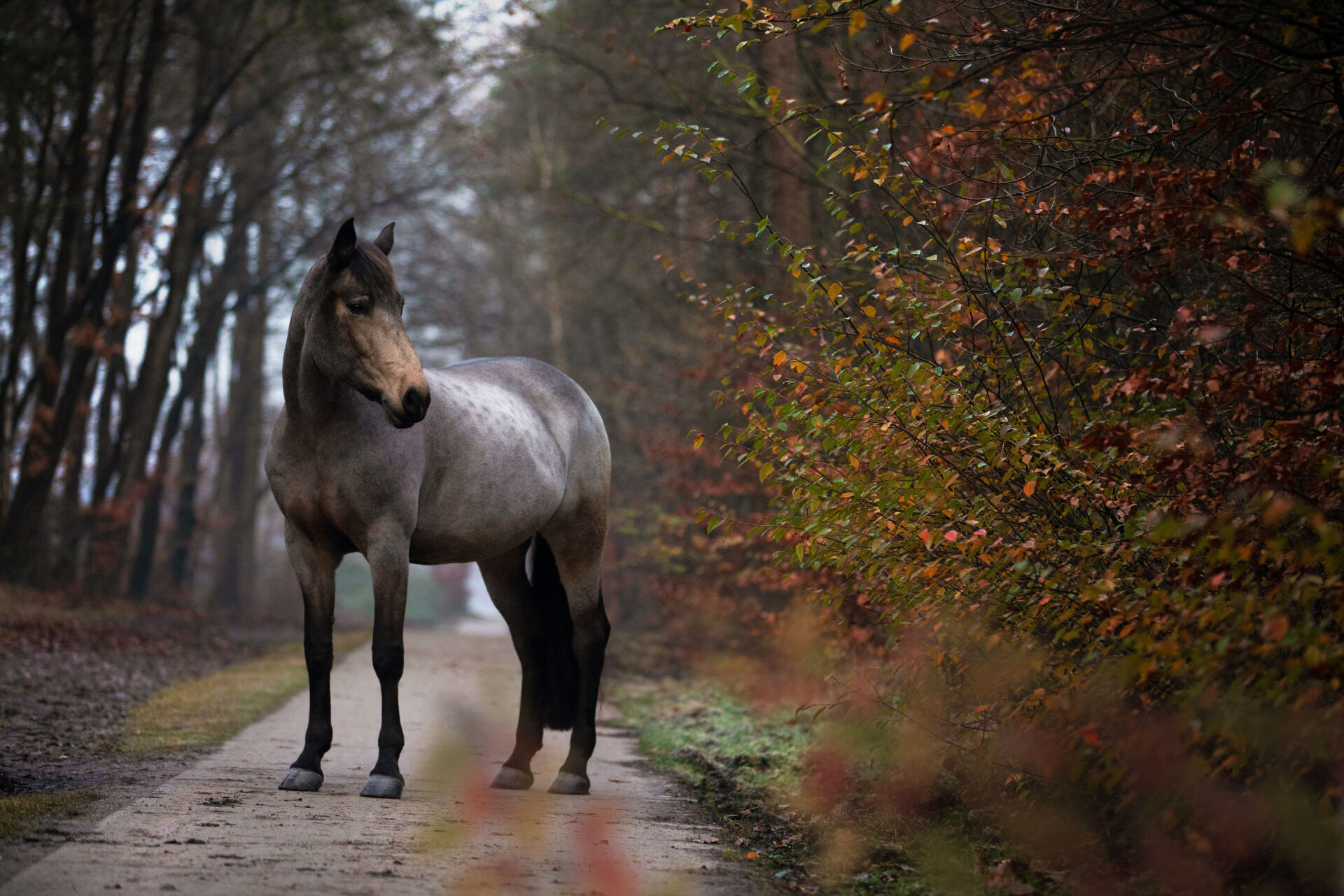
It is therefore not surprising that old horses, compared to other horses, are more sensitive to colic and constipation. Senior horses respond more strongly to changes in the ration in the fall than young horses. There are indications that the digestion system of an older >horse</span> is less able to digest crude protein (Vrep), so that their protein requirements can be 12 to 14% higher. Essential amino acids (that a horse cannot produce itself) such as lysine and threonine are important to maintain muscle mass.
The less efficient digestion also means that a higher concentration of vitamins and minerals must be present in the ration. Young and adult horses can form vitamin C in the liver from glucose, while in older horses the production of vitamin C decreases because the liver functions less well and it will have to be offered in the ration. In addition, it is not beneficial for old horses to have too much sugar. Excessive sugars burden the digestion, which increases the chance of metabolic diseases. Instead, provide your horse with vitamin C and avoid sugars and starches.
In the Hartog 5 * Complete Care Senior, vitamin C has been added and the feed contains a minimal amount of sugar and starch. Phosphorus needs may be higher in older horses (0.4 to 0.65% higher). However, calcium must remain at maintenance level to maintain the Ca: P ratio of approximately 2: 1.
The reduced intestinal function also ensures that senior horses are more sensitive to problems with the digestive system. For example, old horses can suffer from various intestinal problems such as (over) sensitive abdomen and intestines, an increased chance of (gas) colic or, for example, inflammation of the small intestine.
Hartog horse feed recommends a combination of the Hartog Senior with Hartog Digest to aid the digestion of a senior &gt;horse</span>. The Hartog Senior is a complete feed, the horse is provided with all necessary vitamins, minerals, fibers and amino acids. To support the horse with the optimal use of the Hartog Senior it is recommended to feed a horse (600 kg) 1 kg Hartog Digest. This product supports and protects the gastrointestinal tract, positively influences the Ph value and allows intestinal flakes to function better. Older horses with reduced intestinal function and digestion can use this well. After all, it is not only about what the horse receives, but about what the horse can digest and use as a result!
The Hartog Digest contains many ingredients to ensure optimization of a digestion system with any horse. Among other things the Powerstart formula consisting of tannin and butyrate, Diamond V yeast cultures, magnesium oxide and prebiotics. Research has demonstrated that digestion of protein, magnesium, and fibers improve significantly from Diamond V yeast cultures (Switzer, 2003). A big advantage to feeding this combination is that it is unnecessary to feed supplements. Read more about all the special workings of the Hartog Senior.
Read further in Older horses Part 10: Feeding old horses
S.T. Switzer, L.A. Baker, J.L. Pipkin, R.C. Bachman J.C. Haliburton (2003) EFFECT OF YEAST CULTURE SUPPLEMENTATION ON NUTRIENT DIGESTIBILITY IN AGED HORSES. Equine Industry Program, Division of Agriculture, West Texas A&M University, Canyon, TX. Texas A&M Veterinary Medical Diagnostic Laboratory, Amarillo, TX.
Receive the latest offers, exclusive content and news from Hartog Family Farms.

Grasdrogerij Hartog B.V.
Mijnsherenweg 7
1658 CA Lambertschaag
0229 – 58 12 32
info@hartog.eu